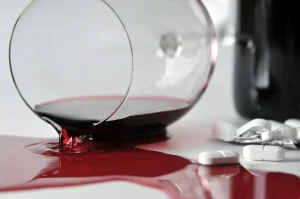Sober living
Recovery After Rehab: Moderation or Abstinence?

Individuals with these symptoms may also struggle to understand which alcohol is the most tempting for them. There are various ways that individuals can take advantage of face-to-face gatherings, very much like what is offered by moderation management, or they can settle on online experiences that can fulfill the same need in a more adaptable way. On the site of the drug addiction program, one can find aides that show how much alcohol is permissible as well as commentaries that allow individuals to examine their battles and find recognition for their accomplishments. Also, one should remember the outcomes of utilizing, not with a feeling of regret, but rather with a clear-cut picture of what one has to do to resist utilizing during moderation management. An individual accustomed to engaging in addictive conduct doesn’t require it anymore!

Abstinence Or Moderation: Is There A Correct Choice?
“In my opinion, there are two factors that would have a direct effect on whether or not an alcoholic can drink in moderation. “The second I take that first sip of alcohol, I have an allergic reaction. It’s an old joke in the rooms of recovery support groups and meetings that when an alcoholic drinks, they ‘break out in handcuffs’” she said. “I would re-iterate to anyone who has successfully found abstinence what they already know – the safest amount of alcohol is always none at all.
- Moderate drinking can be a form of mindful drinking, as we’re setting limits on how much we’re choosing to drink.
- Luckily, with a support team by your side, this recovery period can reinvent your future into a beacon of hope for yourself and everyone around you.
- There is no one-size-fits-all solution, as each person’s experience is unique, and what may work for one individual might not be effective for another.
- It has been proven that when those problems are fixed, the tendency to drink when disturbed might be handled, and being able to avoid feelings may be accomplished.
Total Alcohol Abstinence vs. Moderation: Which One Wins in the End?
Ria Health offers several FDA-approved medications for alcohol use disorder. When combined with counseling, this approach is proven highly effective. When it comes to AUD, we need more alternatives to abstinence, with abstinence remaining a key option, Bathje adds, including for people who’ve previously chosen moderation. “The only difference is that abstinence is harm reduction when the person has chosen it voluntarily for themselves,” Bathje says. We have safe substance use spaces for alcohol, too, like bars with rules and restrictions, Bathje explains. And we have quality control measures in place for how alcohol is manufactured that prevent people from being poisoned (4).

For Treatment Providers
Most facilities, like inpatient rehabs, use a zero-tolerance approach, meaning that no use of any substance is allowed. Rehab facilities achieve this through random urine drug screens, group treatment programs, and care coordination. Of the patients studied, 90% of total abstinence patients were still sober two and a half years after treatment. moderation vs abstinence Only 50% of those who focused on controlled consumption succeeded in controlling their drinking. A few groups don’t love the modernized moderation management technique and promote balance as just a pardon to backslide.
Quality of life / Functioning
Remember, the path to long-term recovery is a personal https://ecosoberhouse.com/ journey, and finding the right approach for your unique situation is essential for success. For those struggling with alcohol addiction or considering returning to drinking after sobriety, seeking professional help is highly recommended. Therapy, support groups, and other resources can provide invaluable assistance in managing addiction and maintaining recovery. Receiving professional guidance can empower individuals to take control of their recovery journey and resist the temptation of drinking alcohol after therapy. Environmental factors, such as family history, peer pressure, and stress, can also contribute to a person’s risk of developing AUD.
The Step 1 Group & Vision
However, if you truly feel you might have alcohol dependency, take this test, then give us a call. Our four award-winning treatment centers in New Jersey are CARF-accredited facilities, an organization promoting best practices in behavioral health and evidence-based addiction recovery. Through our Seabrook Model, our board-certified professionals provide individualized treatment to help you move forward in life with confidence and strength.
- Most relapse prevention plans highlight the numerous benefits of drug and alcohol abstinence to ensure long-term recovery.
- Among the most widely studied are how motivated and confident someone is in being able to reduce or quit drinking.
- If you have a history of problems where alcohol is the root cause, it’s not the time to play around with new forms of treatment.
- While many striving for improved health and wellness may wonder if a recovered alcoholic can drink again, the best road forward is to avoid drinking in the future.
Factors to Consider

It is also worth mentioning some baseline (i.e., pre-treatment) differences between the three groups to get a sense of the types of individuals in each group. This study by Kuerbis and colleagues investigated how individuals with different clinical profiles will respond to moderation-focused alcohol interventions. Drinking alcohol in excess can negatively impact your health, including almost every part of your body. High alcohol consumption is not considered safe, and has the potential to damage vital organs, as well as affect your behavior and mood. Moderation or abstinence can be a viable tool for adapting ones’ relationship with alcohol when safely achieved.
- If you find yourself in an environment surrounded by others who are drinking, the best route for you is to replace alcohol with water, soda or other non-alcoholic drinks.
- Regardless of your path, working with a physician and therapist can provide answers, reassurance, and guidance throughout the process.
- This disease is not a choice, so believing you can control it when you have an addiction can be dangerous and naive.
- In some cases, abstinence may be the best option, as continued use of the addictive substance or behavior can exacerbate existing mental health issues.
- The Sinclair Method (TSM), which involves taking the drug naltrexone to relearn moderation, has a success rate of 78%.
- While sobriety can be achieved by anyone, it’s important to check in with your healthcare provider before making significant changes to your drinking patterns.
The Benefits of Abstinence vs Moderation
A lapse is a brief return to drinking or using drugs, but the individual quickly stops again. Relapsing is when the individual returns to drinking or using drugs after a period of sobriety. Relapsing is when an individual returns to drinking or using drugs after a period of sobriety, which differs from a lapse where they briefly drink but then quickly stop again. By focusing on these positive aspects of an alcohol-free life, individuals can remain committed to their recovery journey and experience a greater sense of overall well-being. Recovery is about more than just stopping the substance use—it’s about rebuilding your life. By choosing abstinence and using other evidence-based practices, you have the best opportunity to heal both physically and emotionally, free from the cycles of addiction.
